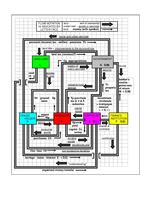
Photo from wikipedia
This paper articulates a positive economic theory of foreign aid and presents a novel analysis of the nexus between institutions, foreign direct investment (FDI), and aid. In the model, aid… Click to show full abstract
This paper articulates a positive economic theory of foreign aid and presents a novel analysis of the nexus between institutions, foreign direct investment (FDI), and aid. In the model, aid is motivated by non-altruistic economic considerations, namely the desire of the donor country to protect FDI from expropriation. We first identify the conditions under which aid will be granted and characterize how the quantity of aid varies with the host country’s development stage. We then endogenize the host country’s institutions and identify the conditions under which institutional reform (adoption of a commitment technology) will be carried out, as well as the conditions that give rise to an expropriation trap—a situation where neither will the host country reform its institutions voluntarily nor will the donor country provide incentives for the institutional reform.
Journal Title: Economic Theory
Year Published: 2017
Link to full text (if available)
Share on Social Media: Sign Up to like & get
recommendations!